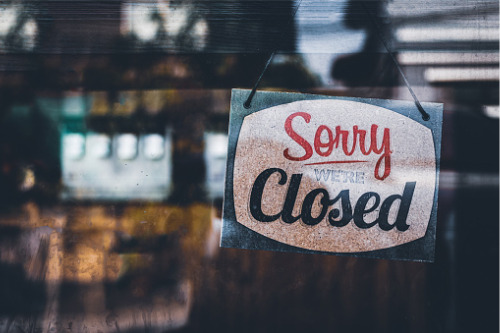But according to CreditorWatch CEO, this will be part of a return to a pre-COVID normal

CreditorWatch’s latest Business Risk Review has shown a 24% jump in external administrations and a 9% increase in credit defaults over the past three months – but, according to CEO Patrick Coghlan, this is not a cause for concern.
“I think it’s actually a good sign that we are trending back to normality, which is really important,” he told MPA. “We’re still well below normal, what I call pre-COVID, figures for key indicators like defaults and administrations, however, we are seeing slight upticks in those month-to-month which is a necessity – we have to get back to normal levels for those figures.”
He said usually around 9,000 companies go into administration each year outside of COVID.
“If we can get back to that 7,500-8,500 number of companies going into administration then we know we’re back to a normal trading environment,” he said. “We’ve been talking about the fact that these numbers will start to increase eventually, and we had earmarked April - and it didn’t quite start in April, but it certainly started in May. We expect administrations and defaults to continue to trend upwards until we get back to normal pre-COVID numbers.”
Read more: Administrations surged 61% in February
But this won’t mean a tsunami or massive increase, he added.
“I don’t have exact figures but up to 10% probably wouldn’t be shocking month on month,” he said.
Coghlan pointed to the emergence of a multi-speed economy based on the different states and territories and said any consideration of industry performance needed to take this into account.
“You’ve got Victoria struggling the most, and we will see them struggle for a number of months with these stop/start lockdowns they are experiencing,” he said. “In the middle you’ve got NSW and they’re quickly catching WA and QLD who have been trading fairly normally for a good six-nine months now.
“Mining has performed extremely well and has continued to do so - and will do so for some time, whereas if you look at retail hospitality specifically in Victoria, they’re doing it really tough.
“Ones to keep an eye on are construction, healthcare, non-COVID-related health businesses.”
Read more: The industries of "most concern" following end of JobKeeper
Wholesale trade was an industry suffering at a national level, with supply chain issues and increased shipping costs not likely to be fixed any time soon, he added.
“Some of the anecdotal data is showing that a container is three times more expensive to get into Australia than it was 12 months ago,” he said. “The costs are going up significantly, which obviously puts pressure on businesses if they’re not passing that on to the consumer or end user. And then if it is passed on, that obviously puts more pressure on the consumer and what they’re purchasing.”
Coghlan said while the Melbourne lockdown is putting pressure on the Victorian economy, he doesn’t expect it to impact the wider national outlook.
“The economic position we find ourselves in wasn’t in anyone’s best case scenarios 12 months ago,” he said. “We’re just powering so far ahead of expectations, which is really positive.”
 Kate McIntyre is an online writer for Mortgage Professional Australia. She has a wealth of experience as a storyteller and journalist for a range of leading media outlets, particularly in real estate, property investing and finance. She loves uncovering the heart behind every story and aims to inspire others through the artful simplicity of well-written words.
Kate McIntyre is an online writer for Mortgage Professional Australia. She has a wealth of experience as a storyteller and journalist for a range of leading media outlets, particularly in real estate, property investing and finance. She loves uncovering the heart behind every story and aims to inspire others through the artful simplicity of well-written words.Email | LinkedIn



